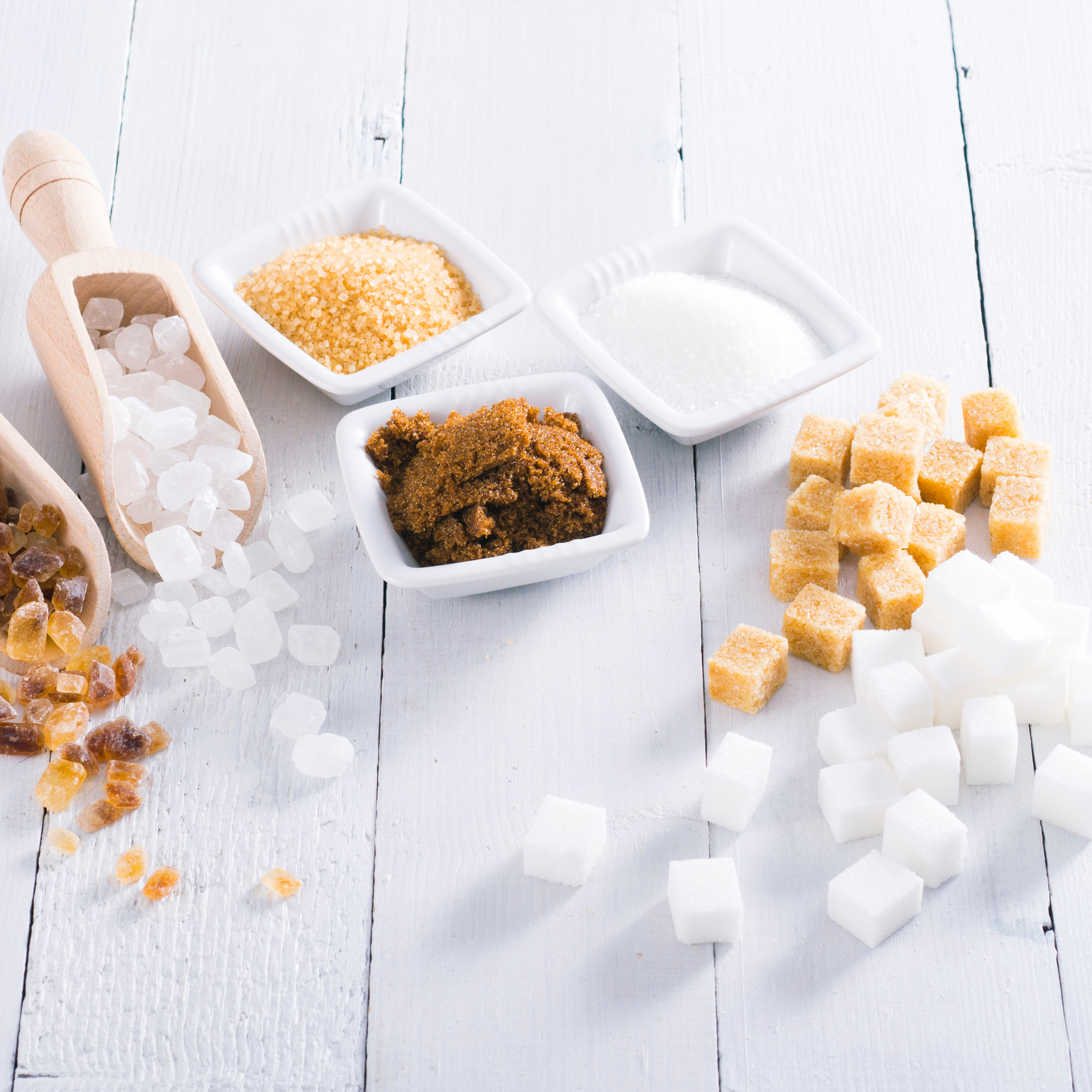
The Health Impact of Processed Sugar
Processed sugar is a common ingredient found in many foods, including sweetened beverages, desserts, and processed snacks. Consuming too much processed sugar can contribute to weight gain and increase the risk of chronic health conditions such as type 2 diabetes, heart disease, and obesity.
When we consume processed sugar, it causes a rapid increase in blood sugar levels, which triggers the release of insulin. Insulin is a hormone that helps move sugar from the bloodstream into the cells where it can be used for energy. However, when we consume too much sugar, the cells become resistant to insulin, and the sugar remains in the bloodstream, leading to high blood sugar levels.
Consuming too much processed sugar can lead to increased calorie intake, which can cause weight gain over time. Processed sugar is also often lacking in essential nutrients and can lead to nutrient deficiencies. The American Heart Association recommends that women should limit their intake of added sugars to no more than 6 teaspoons per day and men to no more than 9 teaspoons per day.
Fortunately, there are alternative sweeteners that can be used in place of processed sugar to help reduce the risk of weight gain and improve overall health. It is best to stick with natural sweeteners, since the artificial sweeteners made in a lab do not have much research on their long term safety.
Monk fruit and stevia are two natural sweeteners that are considered safe and healthy alternatives to processed sugar.
Monk fruit, also known as luo han guo, is a small, round fruit native to southern China. The extract is 150-200 times sweeter than sugar, but it has no calories or carbohydrates. It has been traditionally used as a sweetener in Asia for centuries and is considered safe for people.
Stevia is a sweetener and sugar substitute derived from the leaves of the plant species Stevia rebaudiana. Stevia has no calories and is around 200-300 times sweeter than sugar. It has been traditionally used as a sweetener in South America for centuries, and is considered safe for people.
The FDA has classified both Stevia and monk fruit extract as generally recognized as safe (GRAS) substance, which means it has a long history of safe use. It's important to note that while these sweeteners are considered healthier alternatives to processed sugar, it's still important to consume them in moderation.
Consuming too much processed sugar can contribute to weight gain and increase the risk of chronic health conditions. Natural sweeteners like monk fruit and stevia can be used as healthy alternatives to processed sugar. try your best to limit your overall sugar intake to maintain a healthy weight and diet.
Calorie Calculator

Build Your MonkVee® Box
Ditch the sugar & lab made sweeteners for good!
Glycemic Index Calculator
Click product for details and to upgrade to Subscribe & Save
Try MonkVee®
Mac: Command + F to find your question
Commonly Asked Questions
Why use Monk Fruit Sweetener?
MonkVee® Monk Fruit Sweeteners are 100% natural and zero calories. Unlike sugar which is known to be the leading cause of dozens of awful chronic illnesses such as certain cancers, diabetes, and other killers. MonkVee® Monk Fruit (and Stevia extract) are the healthiest known sweeteners available on the market today. Unlike lab-made artificial sweeteners, MonkVee® is your #1 choice for pure, natural, delicious sweetness. No More sugar spikes and sugar crashes, jitters, diseases, tooth decay and cavities... The list goes on. Try MonkVee® and enter the sweet life!
Will monk fruit sweetener activate yeast
Monk fruit doesn't activate yeast like sugar does, however, by using MonkVee® Monk Fruit, you can reduce the sugar in your recipe overall and have a much healthier outcome! And it will taste just as good! See our full article about baking with monk fruit here.
What is monk fruit?
Monk fruit, also known as luo han guo, is a small green melon native to Southeast Asia. It's valued for its sweetness and health benefits.
How is monk fruit sweetener made?
Monk fruit sweetener is made by extracting the natural sugars from the monk fruit, resulting in a concentrated sweetener that is much sweeter than sugar.
Is monk fruit sweetener a good sugar alternative for baking?
Yes, monk fruit sweetener can be used as a sugar alternative in baking. It provides sweetness without the calories or blood sugar spikes associated with regular sugar.
Does monk fruit sweetener have any calories?
Monk fruit sweetener is calorie-free, making it an excellent option for those watching their calorie intake.
Can monk fruit sweetener be used by people with diabetes?
Yes, monk fruit sweetener is a suitable option for people with diabetes because it does not affect blood sugar levels.
Is monk fruit sweetener safe for weight loss diets?
Monk fruit sweetener can be a helpful tool for those on weight loss diets as it provides sweetness without the calories of sugar.
Does monk fruit sweetener have an aftertaste?
Monk fruit sweetener typically does not have an aftertaste, especially when compared to other artificial sweeteners.
Can monk fruit sweetener help with acne?
While there's no direct evidence linking monk fruit sweetener to acne, reducing sugar intake, including monk fruit sweetener, may contribute to clearer skin for some individuals.
Does monk fruit sweetener affect sleep quality?
Monk fruit sweetener does not directly affect sleep quality. However, consuming it in excess before bedtime may lead to digestive discomfort, which could impact sleep.
Are there any known side effects of consuming monk fruit sweetener?
Monk fruit sweetener is generally recognized as safe (GRAS) according to the FDA.
Can monk fruit sweetener be used in hot beverages like coffee or tea?
Yes, monk fruit sweetener can be added to hot beverages like coffee or tea to sweeten them without adding calories.
Is monk fruit sweetener suitable for vegan diets?
Yes, monk fruit sweetener is vegan-friendly as it is derived from the fruit and does not contain any animal products.
How does monk fruit sweetener compare to other natural sweeteners like stevia?
Monk fruit sweetener and stevia are both natural sweeteners with zero calories, but monk fruit is often considered to have a cleaner, more sugar-like taste.
Can monk fruit sweetener be used in cold beverages?
Yes, monk fruit sweetener can be used to sweeten cold beverages like iced tea or lemonade without any issues.
Does monk fruit sweetener contain any artificial ingredients?
No, monk fruit sweetener is made from the natural sugars found in the monk fruit and does not contain any artificial ingredients.
Can monk fruit sweetener be used in recipes that require caramelization?
Monk fruit sweetener can be used in recipes that require caramelization, but it may not caramelize in the same way that sugar does.
Can monk fruit sweetener be used in homemade jams and preserves?
Yes, monk fruit sweetener can be used to sweeten homemade jams and preserves instead of sugar. It will provide sweetness without adding extra calories.
Does monk fruit sweetener have a glycemic index?
Monk fruit sweetener has a glycemic index of zero, meaning it does not raise blood sugar levels.
Can monk fruit sweetener be used in raw desserts?
Yes, monk fruit sweetener can be used in raw desserts to add sweetness without the need for cooking or baking.
Is monk fruit sweetener suitable for people with gluten intolerance?
Yes, monk fruit sweetener is gluten-free and can be safely consumed by people with gluten intolerance or celiac disease.
Can monk fruit sweetener be used in homemade salad dressings?
Yes, monk fruit sweetener can be used to sweeten homemade salad
Is monk fruit sweetener suitable for people following a ketogenic diet?
Yes, monk fruit sweetener is suitable for those on a ketogenic diet as it does not contain any carbohydrates or sugars that could affect ketosis.
Can monk fruit sweetener be used in beverages other than tea and coffee?
Absolutely! Monk fruit sweetener can be used in various beverages like smoothies, cocktails, and flavored water to add sweetness without the extra calories.
Does monk fruit sweetener affect blood sugar levels?
No, monk fruit sweetener does not affect blood sugar levels as it has a glycemic index of zero. It's a suitable option for those monitoring their blood sugar.
Is monk fruit sweetener safe for pregnant women?
Monk fruit sweetener is generally considered safe for pregnant women, but it's always best to consult with a healthcare professional for personalized advice.
Can monk fruit sweetener be used in homemade granola bars?
Yes, monk fruit sweetener can be used in homemade granola bars to provide sweetness without the added sugar. It's a healthier option for snacks.






















